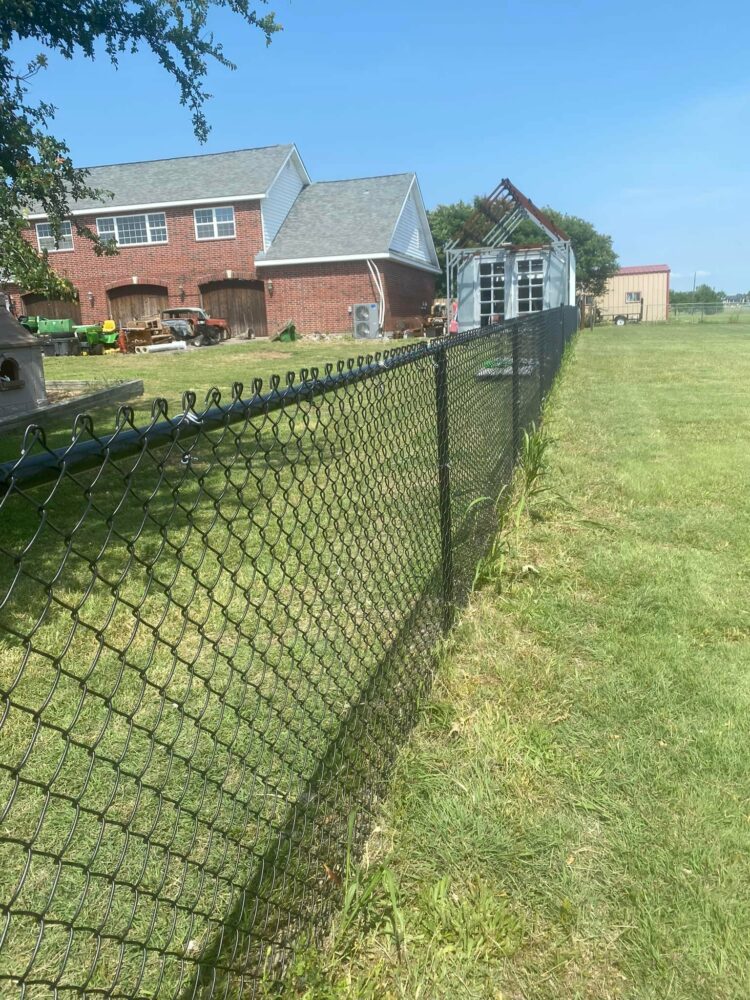Commercial Chain Link Fence Height: Your Complete Selection Guide
Every commercial property owner faces the same critical decision: how tall should your chain link fence be? Recent industry data shows that 73% of businesses underestimate the importance of proper fence height selection, leading to costly modifications down the road. Whether you’re securing a warehouse, retail space, or industrial facility, getting the height right the first time protects both your investment and your peace of mind. The stakes couldn’t be higher when it comes to commercial chain link fence decisions.
Your fence height directly impacts security effectiveness, regulatory compliance, insurance requirements, and long-term maintenance costs. At DFW Fence Pro, we’ve helped hundreds of commercial clients navigate these decisions, and we understand that one size definitely doesn’t fit all when it comes to commercial chain link fence installations.

Understanding Standard Commercial Fence Heights
Commercial chain link fencing typically ranges from 6 feet to 12 feet in height, with 8-foot installations being the most popular choice for general commercial applications. The “standard” height depends entirely on your specific security needs, local regulations, and budget considerations.
Six-foot fencing works well for basic perimeter definition and light security needs, such as retail parking lots or low-risk storage areas. However, most commercial properties benefit from 8-foot installations, which provide excellent security while remaining cost-effective and compliant with most local codes.
For high-security applications like industrial facilities, equipment storage, or sensitive material handling, 10-foot and 12-foot options offer maximum protection. These heights require additional engineering considerations and often include security enhancements like barbed wire or razor wire toppers.
Key Factors That Determine Your Ideal Fence Height
Your fence height should match your actual security needs rather than general assumptions about what “looks secure.” Consider the value of assets you’re protecting, foot traffic patterns around your property, and any previous security incidents in your area. Higher-risk properties naturally require taller fencing, but over-securing a low-risk site wastes valuable budget resources.
Local Zoning Laws and Building Codes
Municipal regulations vary significantly across different jurisdictions, and what’s permitted in one area may be restricted in another. Most commercial zones allow 8-foot fencing without special permits, while heights above 10 feet often require additional approvals. Always verify local requirements before finalizing your height decision, as non-compliance can result in costly modifications or legal issues.
Property Purpose and Industry Standards
Different industries have evolved their own fencing standards based on decades of experience. Manufacturing facilities typically use 8-10 foot fencing, while distribution centers often opt for 12-foot installations with security enhancements. Retail properties usually find 6-8 foot fencing sufficient for parking lot security and boundary definition.
Cost Considerations and Budget Planning
Fence height dramatically impacts your total project cost, but not always in the ways you might expect. While taller fencing requires more materials, the real cost drivers include foundation requirements, gate modifications, and potential engineering needs for heights above 10 feet.
An 8-foot commercial installation typically costs 15-25% more than 6-foot fencing, while 10-foot options add approximately 35-45% to base pricing. However, these upfront investments often pay dividends through reduced insurance premiums, fewer security incidents, and enhanced property values.
Consider your long-term needs when making height decisions. Modifying fence height after installation costs significantly more than getting it right initially, making thorough planning essential for budget-conscious property owners.
Making Your Final Height Decision
The right chain link fence height balances security needs, regulatory compliance, and budget realities while supporting your property’s long-term goals. Start by conducting a thorough security assessment of your specific site, then verify local code requirements and industry standards for your business type.
Don’t navigate these important decisions alone. Professional fence contractors bring valuable experience from similar projects and can help you avoid costly mistakes while maximizing your security investment.
Contact DFW Fence Pro today for a comprehensive site evaluation and customized height recommendations. Our experienced team will assess your specific needs and provide detailed proposals that balance security, compliance, and budget considerations. Call us now to schedule your free consultation and take the first step toward better property security.
